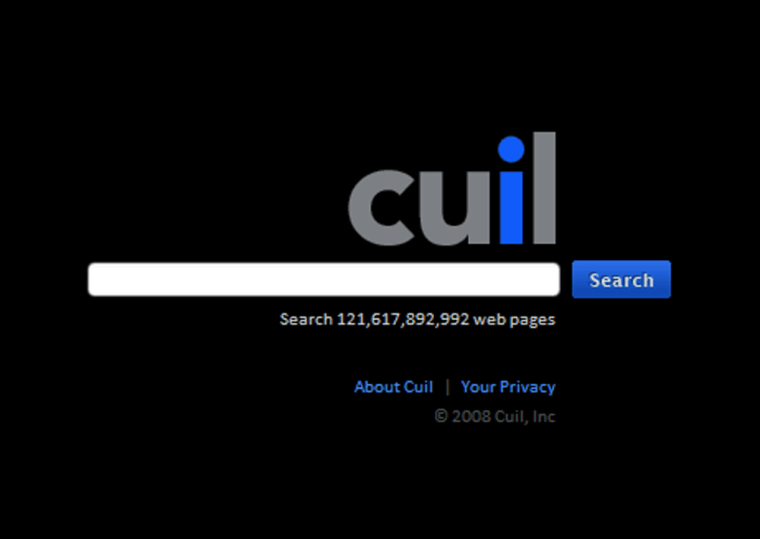I’m not saying our relationship is perfect … Google and me, we have our problems.
For example, I’m not keen on Google’s lack of transparency. Its privacy policy is written in dense legalese, practically indecipherable to the average lay person. And while Google remains decidedly murky about its own goings on, it retains my searches for up to two years, and as yet failed to provide a good reason why.
I’m also not cool with the way Google upholds the Great Firewall of China, complying with the country’s Internet censorship policies. Then there was that time in March 2007 when Google Maps replaced allegedly low-resolution images of Hurricane Katrina-ravaged Louisiana with higher resolutions of the pre-storm state. And don’t get me started on Google’s opaque ranking algorithm!
Oh, I could go on, but you get the point. I’m not ashamed to say that, like a lot of people, I love Google. I just don’t necessarily love some of the things Google does. So of course when another search engine comes along, one that was built by former Google engineers and offers, “new architecture and algorithms that can handle the exponential growth of the Internet and organize results that reflect its enormous complexity,” all while not retaining my search history or traffic patterns, I’m going to pay attention.
That attractive promise comes from the “Our Philosophy” section of Cuil (pronounced “cool”), a feisty new search engine that launched officially this week. The new kid on the Internet boasts an index that spans 120 billion Web pages and an engine that “searches more pages on the Web than anyone else — three times as many as Google and 10 times as many as Microsoft.”
Tough talk indeed from the site named for an ancient Irish term for “knowledge.” What’s more, it promises users drilled-down results that aren’t culled from the most popular sites on the Internet, but the ones more relevant to the user’s search. Further, it presents these results in a reader-friendly magazine format. But is that enough to woo me, and by extension the rest of the Universe, from the infinite arms of Google’s all-knowing search spiders?
Admittedly, Cuil and I got off on the wrong foot right. As an all-American anglophile, I’m down with the crusty Celtic verbiage. But I’m also dyslexic, which makes Cuil’s unintuitive U-before-I spelling off-putting. Misspelling “Ciul.com” in the URL takes you directly to a cybersquatted page declaring “This .com domain for sale blah blah blah.”
This lack of redirect is doubly annoying. How can I trust a search engine if the former Google employees behind this site didn’t know enough to purchase the incorrect spelling as a redirect to the correct site? Surely with a reported $33 million in venture capital backing Cuil, the money was there. Even the fabulists behind LonelyGirl15 knew to purchase domain names before they went public. One almost suspects hubris on the part of Cuil’s creators.
Despite the wacky name, no way is Cuil replacing Google’s cemented position in the Universal nomenclature. Maybe it would work if “Cuil” was pronounced "coo-eel" instead of “cool,” the fledgling engine would have a chance — "coo-eel" sounds like a search engine Superman would use. What’s more, “cuiling” yourself or anybody else lacks the naughty ring of “googling.”
Speaking of naughty, Cuil may not be safe for the kiddies. Remember the days before Web crawlers when a simple search for an applie pie recipe would return a pornado of X-rated results? Google and other popular search engines have since figured out a way to scour the irrelevent pornography links from returns — but Cuil is still ironing out those nasty bugs. And since Cuil shows images with its results, there isn't much left to the imagination.
One poor user recently wrote The Register to inform the British science and tech Web site of the graphic results he received while searching for his work on Grenoble-based quantum computing. The Register later updated the report with an explaination from a Cuil spokesperson who blamed the accidental porn on the the unexpected heavy traffic the site received on launch day. (Huh?)
Indeed, Cuil has been very busy. Aside from the supsect reason for returning naughty images in its results, the new search engine received so many hits, the engine crashed throughout the day. What’s more, my first couple of attempts at cuiling myself returned a whole lot of spam.
Okay. Google does that too, sometimes. So just to make sure, I searched for something really super important: “Baltar.” But only four of the first page of results returned “Gaius Baltar” of “Battlestar Galactica.” The same search on Google gave me a full page of results all referencing Gaius Baltar. Hey, Cuil! Do you really think I care about a place called Baltar or a sunset photo named “Baltar (II)”!?
See, that’s what I’m talking about. Google gets me. Google knows what I want even if I’m not sure myself. Had I entered “Giaus Balter,” Google would’ve politely asked: “Do you mean Gaius Baltar.” Yes Google, yes I do. And there you have it. Being understood without having to explain yourself is a rare gift — something that, at least right now, Cuil hasn’t figured out.
